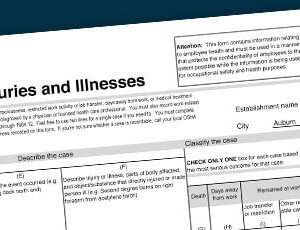Description
Quality Assessment and Performance Improvement (QAPI) Conditions of Participation deficiencies are the third most frequently cited of the 24 Conditions for Medicare-certified hospitals. CMS believes that a hospital with a well-designed and well-maintained QAPI program, fully engaged in hospital-wide continuous assessment and improvement efforts can significantly enhance it ability to provide high quality and safe care to its patients, reduce the incidence of medical errors and adverse events throughout the hospital.
In 2020 CMS published updated standards for QAPI but the interpretive guidelines for the regulation were delayed. Some of the changes to the regulation included a section in the QAPI standards that address patient safety and risk management. Hospitals were cited for not having required policies and procedures. In March 2023, CMS issued the new interpretive guidelines with information and direction for surveyors on assessing a hospital’s QAPI program.
This program will discuss the revised CMS hospital QAPI standards and the new applicable interpretive guidelines. Included will be a discussion on CMS expectations for hospital leadership and the governing body with respect to oversight and execution of the QAPI.
Also, the memo CMS issued regarding the AHRQ Common Formats will be discussed. CMS stated there are several reports that show that adverse events are not being reported. It is estimated that 86% of adverse event are never reported to the hospital’s PI program. Performance improvement is very important to CMS to improve patient safety.
Prior to the new standards and development of the interpretive guidelines, CMS utilized a QAPI worksheet was to help surveyors assess compliance with the hospital CoPs for QAPI. Though no longer utilized by State and Federal surveyors on survey activity, it is an excellent self-assessment tool any size hospitals can utilize to assist with compliance and will be covered briefly during this program.
Objectives
- Recall that hospitals are receiving a high number of deficiencies in QAPI and the common citations
- Discuss that the governing body and hospital leadership are responsible for the QAPI program, its implementation and completion
- Recall key requirements for a QAPI program that will be reviewed and assessed during a survey.
- Recall areas to be assessed during a survey and what surveyors will be reviewing
- Recall that CMS surveyors will review policies in place and observe for implementation of such policies and procedures
Agenda
- Conditions of Participation overview
- CMS memo on reporting into the QAPI system
- Number of deficiencies in the QAPI standards
- CMS Memo on QAPI and adverse reporting
- The Hospital Improvement Rule
- General history and background of QAPI
- Hospital Compare Data
- QAPI standards for hospitals with new interpretive guidelines
- Scope of program
- Program data
- Tracking of quality indicators
- Quality improvement activities
- Performance improvement projects
- Program and hospital services, population
- PI requirements and leadership
- Board responsibility for PI
- Unified and integrated QAPI
Criticals Access Hospitals
- Resources available
- 2019 changes – new tag numbers
- Program design and scope
- Responsibilities of governing body and leadership
- Program activities
- Data collection and analysis
- Resources:
- Worksheet
- TJC, CMS compare, CMS VBP, AHRQ PI toolkit, patient safety indicators, National Quality Forum etc.
Who Should Attend
- Performance improvement director and staff
- Risk management
- Quality staff
- Compliance officer
- Chief nursing officer
- Chief medical officer
- Patient safety officer
- Nurse educator
- Staff nurses
- Nurse managers
- Leadership staff
- Board members
- Accreditation staff
- Department directors
- Infection preventionist
- Anyone responsible to ensure the C
- MS CoPs related to performance improvement.






